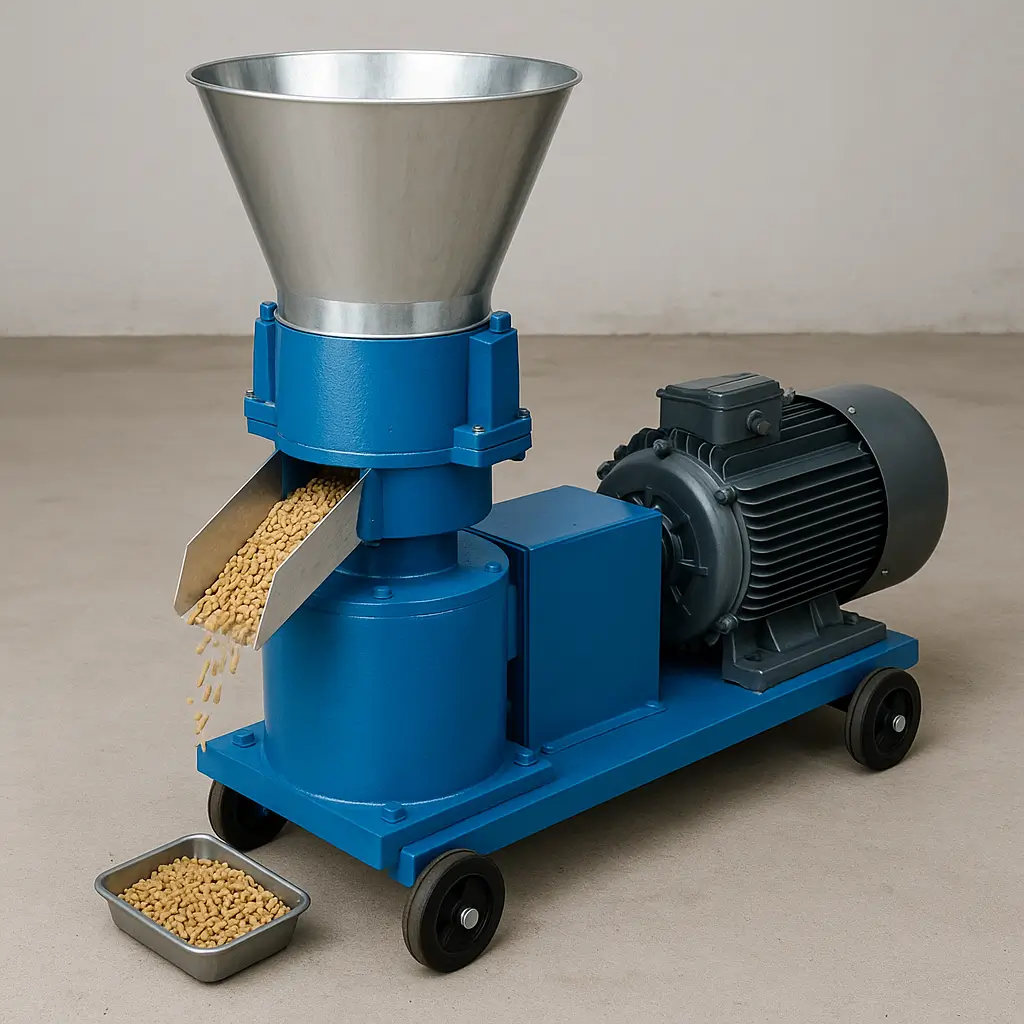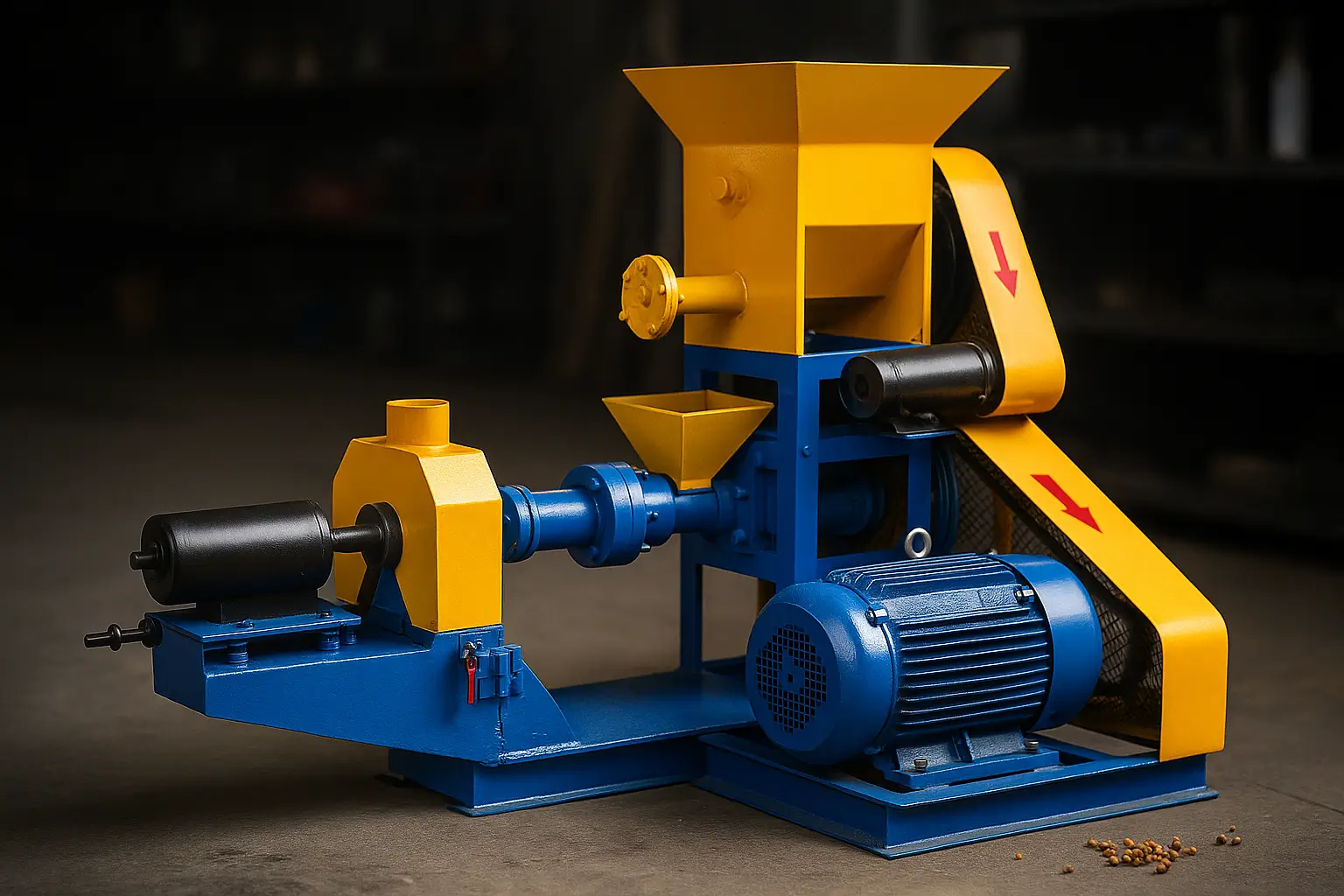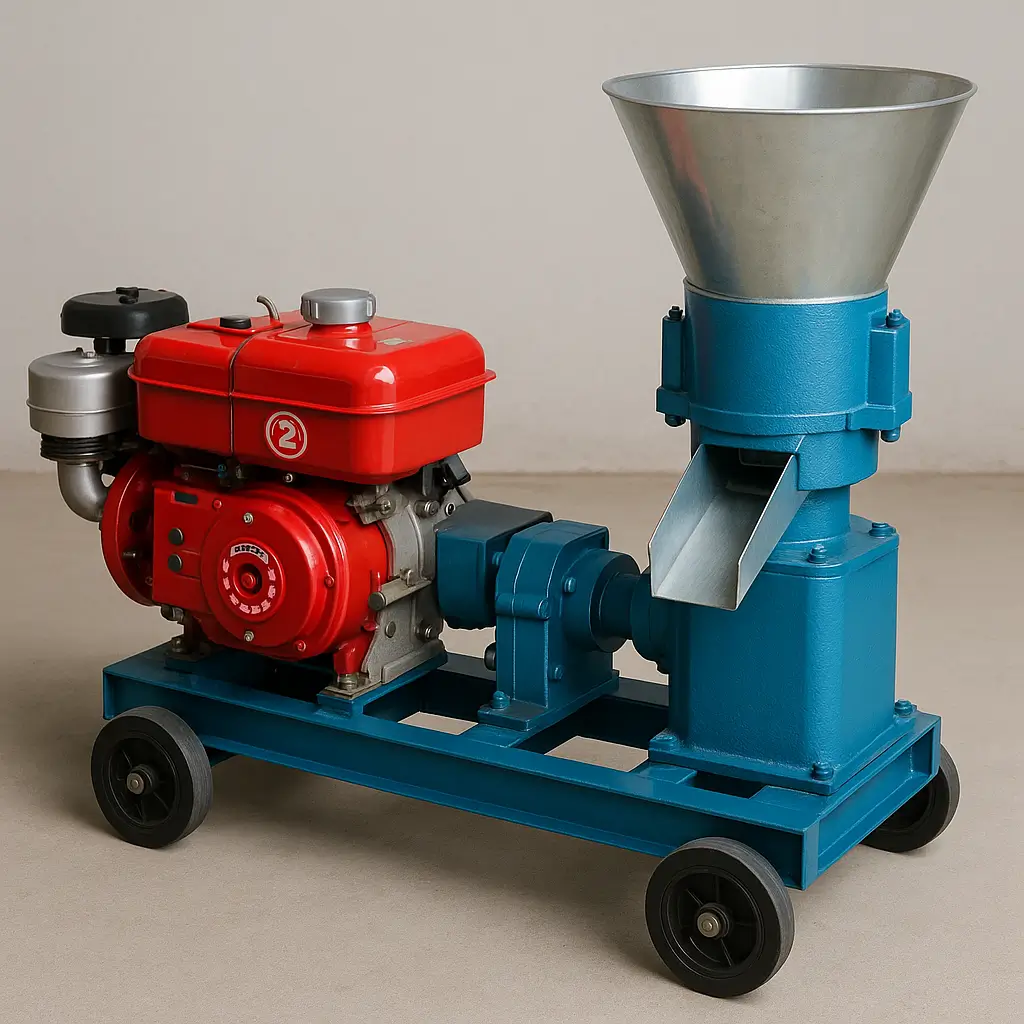Introduction
For farmers across Venezuela, from the Llanos to the Andes, securing a steady supply of affordable, high-quality animal feed is a constant challenge. Relying on commercial feed can be expensive, and its availability is not always guaranteed. An on-farm feed pellet machine in Venezuela offers a powerful way for Venezuelan farmers to achieve self-sufficiency. It allows you to control your costs and use local crops to create nutritious feed for your livestock.
Why a Pellet Machine is a Smart Investment for Venezuelan Farmers
Investing in your own feed pellet machine offers clear, practical advantages in the Venezuelan context.
Take Control of Your Feed Costs and Supply.
Making your own feed reduces your reliance on expensive or hard-to-find commercial feeds. This gives you much more stability in a challenging economy. You are in charge of your own supply.
Use Local Venezuelan Ingredients Effectively.
You can create high-quality feed using locally available and often cheaper ingredients. These include common Venezuelan crops like maize (maíz), sorghum (sorgo), rice bran (salvado de arroz), and other by-products from local agriculture.
Improve the Health and Productivity of Your Livestock.
Pelleting allows you to create a consistent, balanced feed. This means better nutrition for Venezuela’s important poultry, cattle, and pig farming sectors. Healthier animals grow faster and are more productive.
Create a Business Opportunity in Your Community.
Once you are making enough feed for your own farm, you have an opportunity. You can sell your high-quality feed to other local farmers. This creates a valuable local product and a new source of income.

What Feeds Can You Make? For Venezuela’s Key Livestock
A good feed pellet machine is versatile. You can make feed for many different animals common in Venezuela:
- Poultry Feed: For both broilers (meat chickens) and layers (egg-producers), which are a vital food source in the country.
- Cattle Feed: For both dairy and beef cattle, to supplement their grazing and improve their performance.
- Pig Feed: For the significant pig farming operations in various states.
- Fish Feed: For the growing aquaculture sector, especially for species like tilapia.
Types of Machines Best Suited for the Venezuelan Context
It is very important to choose a machine that fits the local conditions, especially regarding the power supply.
Diesel Engine & Petrol Engine Flat Die Mills:
“These are often the most practical and reliable choices for many farms in Venezuela. Given the challenges with the national electricity grid, having a machine with its own engine provides the freedom to work consistently without interruptions.”
PTO-Driven Pellet Mills:
“This is a very smart choice for farmers who already own a tractor. It uses the tractor’s powerful engine to run the mill, making it a versatile and reliable option that doesn’t depend on the grid.”
Small Electric Flat Die Mills:
These are a good choice for farmers in areas with a more stable power supply. They are also good for those who have a reliable generator. They are often quieter and simpler to run when you have power.
Finding Suppliers in Venezuela: Where to Look
Finding a good, reliable supplier of feed pellet machine in Venezuela is a key step.
Major Commercial & Agricultural Hubs: Caracas, Valencia, Maracay, and Barquisimeto.
These cities are the primary centers for importing and selling agricultural and industrial machinery in Venezuela.
Check with Agricultural Supply Stores (Agrotiendas).
Established agrotiendas and companies that sell other farm equipment are a good place to start your search. They may stock smaller machines or know the main importers.
Use Online Marketplaces and Social Media.
You can search on popular Venezuelan platforms like Mercado Libre Venezuela. You can also check Venezuelan farming groups on Facebook or Instagram for recommendations from other farmers.
Considering Importing vs. Buying Locally.
Buying from a local dealer, if you can find a reliable one, means you might have access to service and parts. Importing a machine directly might offer more choice, but it comes with significant logistical challenges, complex customs processes, and no local support if something goes wrong.

A Practical Checklist for Buying a Feed Pellet Machine in Venezuela
Think carefully before you buy a feed pellet machine in Venezuela. Ask yourself these important questions:
- What is your power source reality? “This is the most important question for any farmer in Venezuela. Can you rely on your grid power, or is a diesel, petrol, or PTO-driven machine the only practical choice for you to operate consistently?”
- What animals are you feeding? This is important because it determines the size of the pellets your machine needs to make.
- How big is your farm? This determines the production capacity you need. This is usually measured in kilograms per hour.
- Look for a Strong, Simple, and Repairable Machine. “Getting specialized spare parts can be very difficult in Venezuela. A robust machine with a simple, mechanical design that a local mechanic can understand and repair is often the best long-term investment.”
- Ask About Spare Parts. “Before you buy, ask the supplier a direct question: ‘If I need a new die or roller, how can I get it? Do you have them here, or do I have to find a way to import them myself?’ The answer to this question is critical.”
Cost & Financing Considerations in Venezuela
- Price is Almost Always in US Dollars. You should be aware that due to the economic situation, the price for this type of imported machinery will almost certainly be quoted and negotiated in US Dollars. A small-scale, basic machine might have a starting price of a few thousand US dollars. It is absolutely necessary to get direct, current quotes from suppliers.
- Looking for Financing Options. You can inquire about potential financing through agricultural banks or government programs. However, you should acknowledge that these options can be complex to navigate in the current environment. For many farmers, this will be a direct capital investment.
Conclusion
For Venezuelan farmers, a feed pellet machine is a powerful investment in self-reliance. It helps you take control of your feed supply. It helps you reduce costs by using local crops. And it helps you build a more resilient and profitable farm. In a challenging environment, taking control of your most critical inputs is one of the smartest steps you can take to secure your farm’s future.

FAQ About Feed Pellet Machine in Venezuela
What are the most common ingredients for making animal feed in Venezuela?
A: The most common and cost-effective ingredients are often locally grown crops. This includes maize (maíz) and sorghum (sorgo) as primary energy sources, along with agricultural by-products like rice bran.
Is a diesel or electric machine a better choice for a farm in Venezuela?
A: A diesel, petrol, or PTO-driven machine is often a safer and more reliable choice for most farmers in Venezuela. This is because it is not dependent on the national power grid, which can be inconsistent.
Is it easy to find spare parts for these machines in Venezuela?
A: It can be very difficult. This is why it is extremely important to choose a machine with a simple, robust design. It is also critical to talk to the supplier about how you will get essential wear parts like dies and rollers before you buy the machine.
Where is the best place to start looking to buy a feed pellet machine in Venezuela?
A: A good place to start your search is with established agricultural and industrial equipment dealers in the major commercial cities, such as Caracas, Valencia, and Maracay.
Can I make pellets from local forages or grasses?
A: Yes, many biomass-capable pellet machines can process local forages. However, this is more difficult than pelleting grains. It requires a strong machine and very careful control over the moisture content of the grass before you process it.
